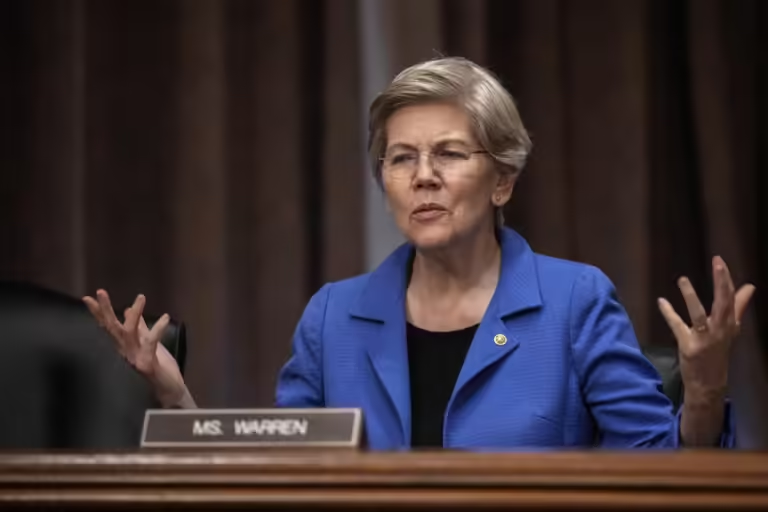Hook: In a fiery debate that’s shaking up the political landscape, Senator Elizabeth Warren and her Republican challenger John Deaton are at odds over the future of cryptocurrency in America. As their arguments unfold, the implications of their clash reach far beyond the campaign trail, touching on issues like inflation, consumer protection, and the freedom of digital finance.
In a recent debate, Democratic Senator Elizabeth Warren took a strong stance against cryptocurrency, emphasizing her belief that it should follow the same strict rules as traditional financial institutions. Her opponent, John Deaton, a long-time advocate for crypto, fired back with a passionate plea, urging her to focus on pressing issues like inflation instead of solely targeting digital currencies.
Key Themes to Understand:
- Senator Warren’s Position:
- Anti-Crypto Army: Warren has built her campaign around a pledge to create an “anti-crypto army,” meaning she wants stricter regulations on cryptocurrencies to prevent fraud and protect consumers.
- Regulatory Focus: She proposed a bill that would enforce Know Your Customer (KYC) rules on crypto miners, validators, and wallet providers, similar to what banks have to follow.
- John Deaton’s Counterarguments:
- Advocate for Crypto Rights: Deaton argues that Warren’s anti-crypto policies could hurt regular people who want to trade and use digital currencies freely. He believes her regulations could favor banks over individual users.
- Questioning Priorities: He challenged Warren’s focus on crypto by saying, “I wish Senator Warren would attack inflation the way she attacks crypto.” This suggests he feels her priorities are misplaced and that pressing issues like rising costs should be more urgent.
- Financial Contributions:
- Crypto Industry Support: Deaton’s campaign is backed by significant donations from prominent figures in the crypto industry, like the founders of Ripple Labs and the Winklevoss twins. This financial support raises concerns for Warren, who claims it might make Deaton beholden to crypto interests rather than his constituents.
Why This Matters:
- Understanding Regulations: The debate highlights the ongoing struggle over how cryptocurrencies should be regulated. As these digital assets become more mainstream, the rules governing them are crucial for protecting consumers while also fostering innovation.
- The Bigger Picture: The discussion about inflation versus crypto regulations is significant. It reflects broader economic concerns and how lawmakers prioritize different issues. For you, as a young person interested in finance and technology, understanding these dynamics is essential for grasping the future landscape of investments and personal finance.
- Consumer Protection: Warren’s emphasis on consumer protection speaks to the need for safety in financial transactions. For anyone looking to invest in crypto, knowing the regulations can help you navigate the space and avoid scams.
Key Terms to Remember:
- KYC (Know Your Customer): A regulation that requires financial institutions to verify the identity of their clients to prevent fraud and illegal activities.
- Consumer Protection Laws: Laws designed to protect buyers of goods and services from unfair practices.
- Inflation: The rate at which the general level of prices for goods and services is rising, eroding purchasing power.
- Regulatory Capture: A situation where regulatory agencies are dominated by the industries they are supposed to regulate, potentially leading to biased decisions.
Conclusion:
This debate isn’t just about two politicians clashing; it’s a pivotal moment in the ongoing conversation about the role of cryptocurrency in our economy. For you, building knowledge in this field can empower you to make informed decisions about investing, trading, and understanding your rights as a consumer in a rapidly evolving digital landscape. The stakes are high, and being informed can set you on the path to financial literacy and independence.



